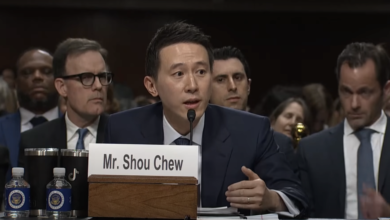The capitalists and their media outlets are in a frenzy about the Oct. 9 nuclear test reportedly carried out by the Democratic People’s Republic of Korea (North Korea). They would have you believe that everyone is in great danger and must immediately build bomb shelters and stock up on supplies because North Korea is on the march.

Soldiers from North Korea and the U.S. stand guard at the truce village of Panmunjom in the demilitarised zone separating the two Koreas, Sept. 13. |
The truth is that North Korea, a country of 23 million people that is slightly smaller than Mississippi, is not a threat to the people of South Korea, or anyone in Asia or the United States. North Korea is isolated diplomatically, has been under U.S. economic sanctions for over 50 years and has 28,000 U.S. troops sitting on its border.
It is a threat only to the plans of the U.S. military-industrial complex, transnational corporations and banks to dominate and control east Asia.
While all progressive people yearn for a world without any nuclear weapons, it is important to understand the unfolding conflict between the Bush administration and North Korea in context. If one side possesses 16,000 nuclear weapons and maintains the largest military machine in human history and then endlessly threatens a small country, it is only rational that the threatened country would seek a military deterrent of its own.
North Korea and the United States narrowly averted a major war in 1994. They only found a way out of the impasse with the signing of the General Framework Agreement that year. North Korea agreed to freeze and seal its nuclear enrichment program, which was designed to create a civilian nuclear energy capability.
In return, the U.S. government agreed to normalize diplomatic relations with North Korea and finance the construction of lightwater nuclear reactor facilities. Twelve years later, there is still no U.S. embassy in Pyongyang and no normalization of relations. The Bush administration has only pursued a policy at aimed overthrowing the North Korean government.
The United States government also reneged on building the lightwater nuclear reactors. North Korea abided by the General Framework Agreement and the United States did not.
Any objective assessment of the past 12 years reveals that the U.S. government, and particularly the Bush administration, bears full responsibility for the current situation.
Historical background
In September 1945, when U.S. troops entered Korea south of the 38th parallel, they did so with the intention of taking control of the entirety of the Korean peninsula. They took the place of the defeated Japanese army that had been the colonial occupiers for the previous half a century.

Bush peering into North Korea at the DMZ. |
When George W. Bush took office in January 2001, he made it immediately clear that the complete takeover of Korea, which would then serve as a gateway into mainland Asia, was a top priority.
The Bush administration’s repeated threats of war have included the characterization of North Korea as part of an “axis of evil,” along with Iran and Iraq. John Bolton, then the under secretary of state for arms control, stated that Iran, Syria and North Korea should “draw the appropriate lesson from Iraq.” Bolton said this on April 9, 2003, the day of the so-called “fall of Baghdad.”
The United States has the largest military the world has ever known. Its military budget in 2007 is officially around $500 billion. It has 1,000 military installations and 25 percent of its military personnel in over 135 countries around the world. It has at least 16,000 nuclear weapons, 500 of which are deployed outside its own borders.
The United States is the only country ever to have used nuclear weapons. It made the use of nuclear weapons in “non-nuclear situations” and against non-nuclear countries its official policy in the 2002 National Security Doctrine.
North Korean self-defense
In the face of very real U.S. threats, North Korea decided to enhance and showcase its capacity to defend itself militarily. The North Korean government has not concealed its recent progress in nuclear weapons development. It has made clear its belief that a nuclear weapons program is necessary for the purpose of self-defense.
Iraq found itself under similar threat from the United States between 1991 and 2003. Its government made repeated efforts to comply with U.S. demands. Now, the fact that Iraq did not possess weapons of mass destruction is widely known. The allegations are almost universally understood to have been a public relations ploy by those who wanted war.
Iraq’s agreement to destroy its own non-nuclear missiles and other non-nuclear weapons did not stop the United States from invading and occupying the country. Cooperating with the U.N. weapons inspectors only aided the U.S. government in its planning and preparation.
In this context, if North Korea wants to avoid war, why would they go down the same path?
The events of 1991-2003 in Iraq proved there was no way to satisfy U.S. demands. They were all a pretext for war.
U.S. anti-war movement and working class

Parade in Pyongyang, North Korea. |
There now appears to be unity within the U.S. ruling class that North Korea should be targeted, demonized, and made the subject of fear and hatred to justify ongoing efforts at “regime change” and a possible future military assault.
Far from opposing the U.S. moves toward war with North Korea, Democrats have criticized Bush for not being aggressive enough.
Democratic senate minority leader Harry Reid said, “Distracted by Iraq and paralyzed by internal divisions, the Bush administration has for several years been in a state of denial about the growing challenge of North Korea, and has too often tried to downplay the issue or change the subject.” Democratic senator John Kerry said, “While we’ve been bogged down in Iraq where there were no weapons of mass destruction, a madman has apparently tested the ultimate weapon of mass destruction.”
It is necessary for the working class and progressive movement to take an independent path.
The ANSWER Coalition (Act Now to Stop War and End Racism) has made it clear that it opposes all U.S. threats against North Korea. It joins with the people of Korea who call instead for the removal of U.S. troops and bases from South Korea, the signing of a peace treaty formally ending the Korean War of 1950-1953—technically the two countries are still at war, since the United States refuses to sign a Peace Treaty that would formally end the conflict—and the lifting of economic sanctions on North Korea.
Tensions are mounting by the day. South Korean, North Korean and U.S. troops in the region have been put on heightened alert. Even if all sides want to avert a war, the situation is so tense that the stage has been set for a rapid escalation.
If the U.S. government moves towards war, it will be the duty of all anti-imperialist forces in the anti-war movement to expose the supposed justifications as mere pretexts, just like they were in Iraq.
The anti-war movement must direct all of its energy and demands against the aggressors—particularly, U.S. imperialism, the most dangerous and dominant power in the world today. All attempts to place demands on countries and people targeted by the White House and the Pentagon should be resisted.
As long as the United States, Britain, France and other powers possess nuclear weapons, the former colonial countries that are now targeted for “regime change” may well seek to develop these and any other weapons necessary for their own defense. It is essential to resist the demonization of these countries by the governments and media that seek to prepare the population for another war of aggression





